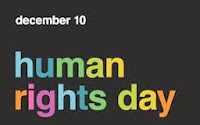This week, a nine judge strong Supreme Court of the UK has been hearing appeals concerning aspects of the
Suicide Act 1961 section 2(1) Complicity in another's suicide Suicide. It is perhaps the
Nicklinson case which attracted the greater publicity (previous post) though, in this appeal, a Mr Lamb was also joined as an appellant.
In Nicklinson/Lamb, the issue is whether the prohibition on assisted
suicide in s2(1) Suicide Act 1961 is incompatible with the appellants’
Article 8 right to respect for private and family life. If the answer is
yes, the appellants argue that in order to comply with their Article 8
rights s 2(1) Suicide Act 1961 should be read as including a defence of
necessity, so that it would not be unlawful for a doctor to assist, or
to have assisted, in the suicide of Paul Lamb and Tony Nicklinson where
they had made a voluntary, clear, settled and informed wish to end their
lives but were unable to do so without medical assistance.
Alternatively, if no such defence is available, they seek a declaration
that s2(1) Suicide Act 1961 is incompatible with the appellants’ Article
8 rights, in so far as it prohibits assisted suicide in their
circumstances.
A further appeal, being heard at the same time, is that of
AM ("Martin").













































